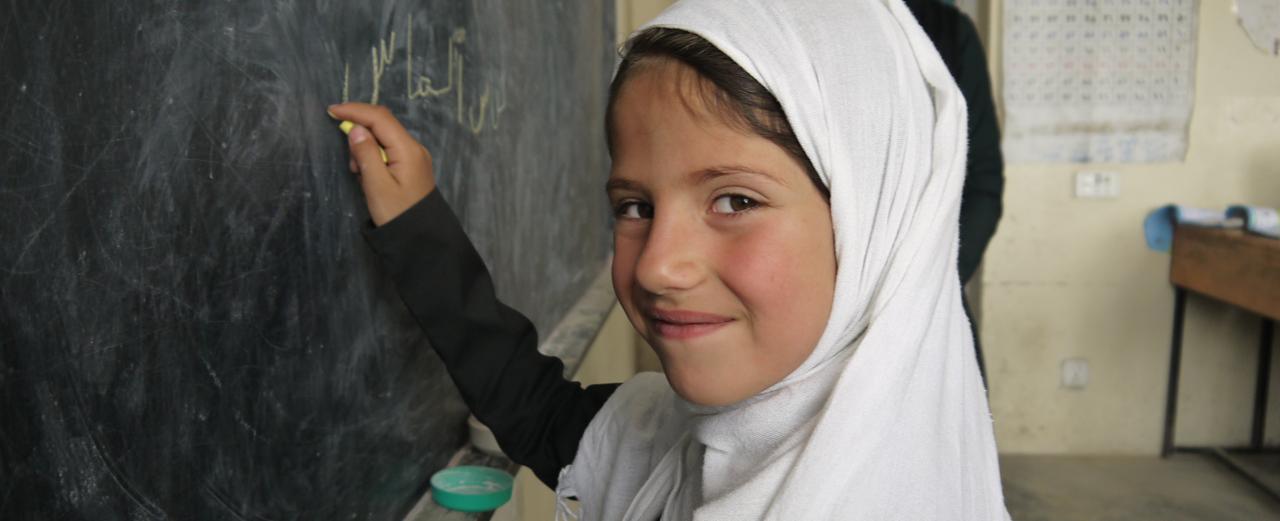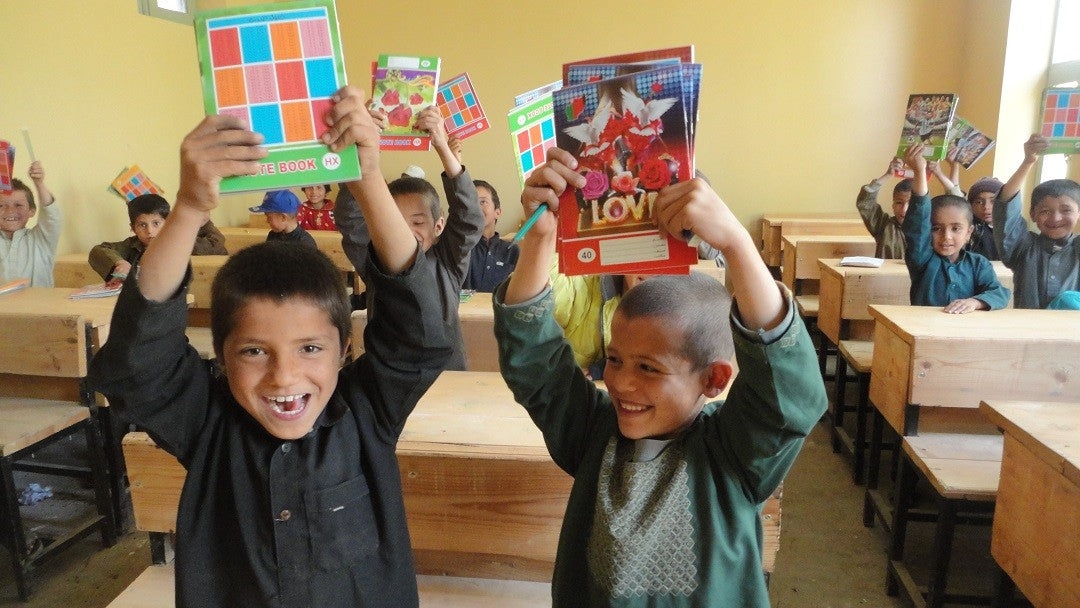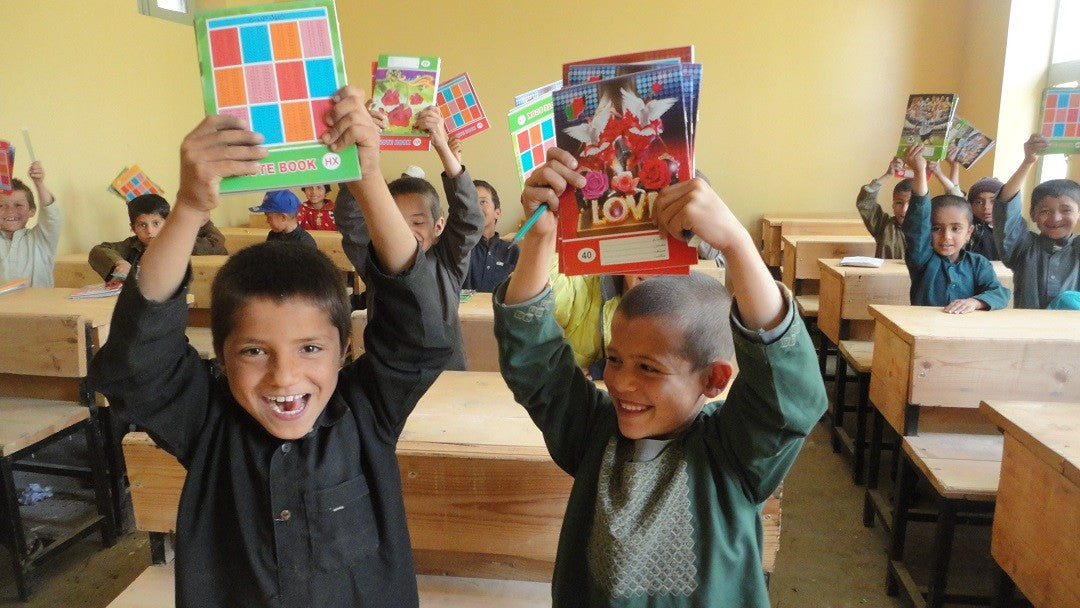Day 18
Eight days of schooling for a child in Afghanistan
 Curiosity and thirst for knowledge for a better future
Curiosity and thirst for knowledge for a better future


School education for girls and boys in northern Afghanistan

need
Primary and secondary education for girls and boys in Kunduz province in northern Afghanistan.
activity
27 local teachers teach 1,200 students at the Khazani School from first grade to high school.
Measurable performance
Number of days of instruction completed for all participating schoolchildren.
Result
School children, especially girls and poor children in the Kunduz region, receive primary and secondary education and thus future prospects.
Systemically relevant impact
Educational opportunities for schoolchildren in the Kunduz region are improving. Reconstruction and peaceful coexistence in the region are being supported.
background


The good deed
AboutAfghanistan
Kabul
Capital city
38,041,750
Population
$1,746
Gross domestic product
per capita per year

Rank 170 of 189
Human Development Index
(Human Development Index)




